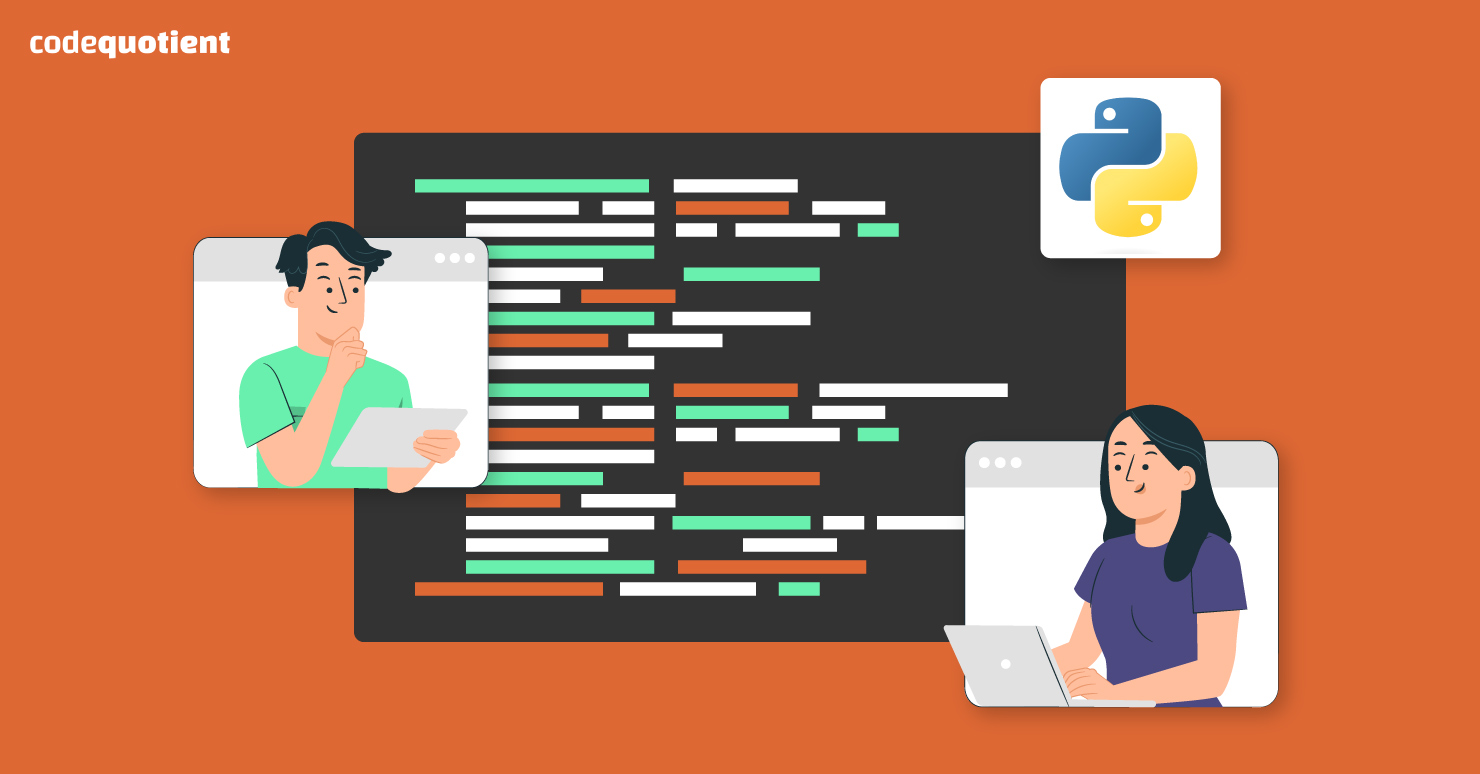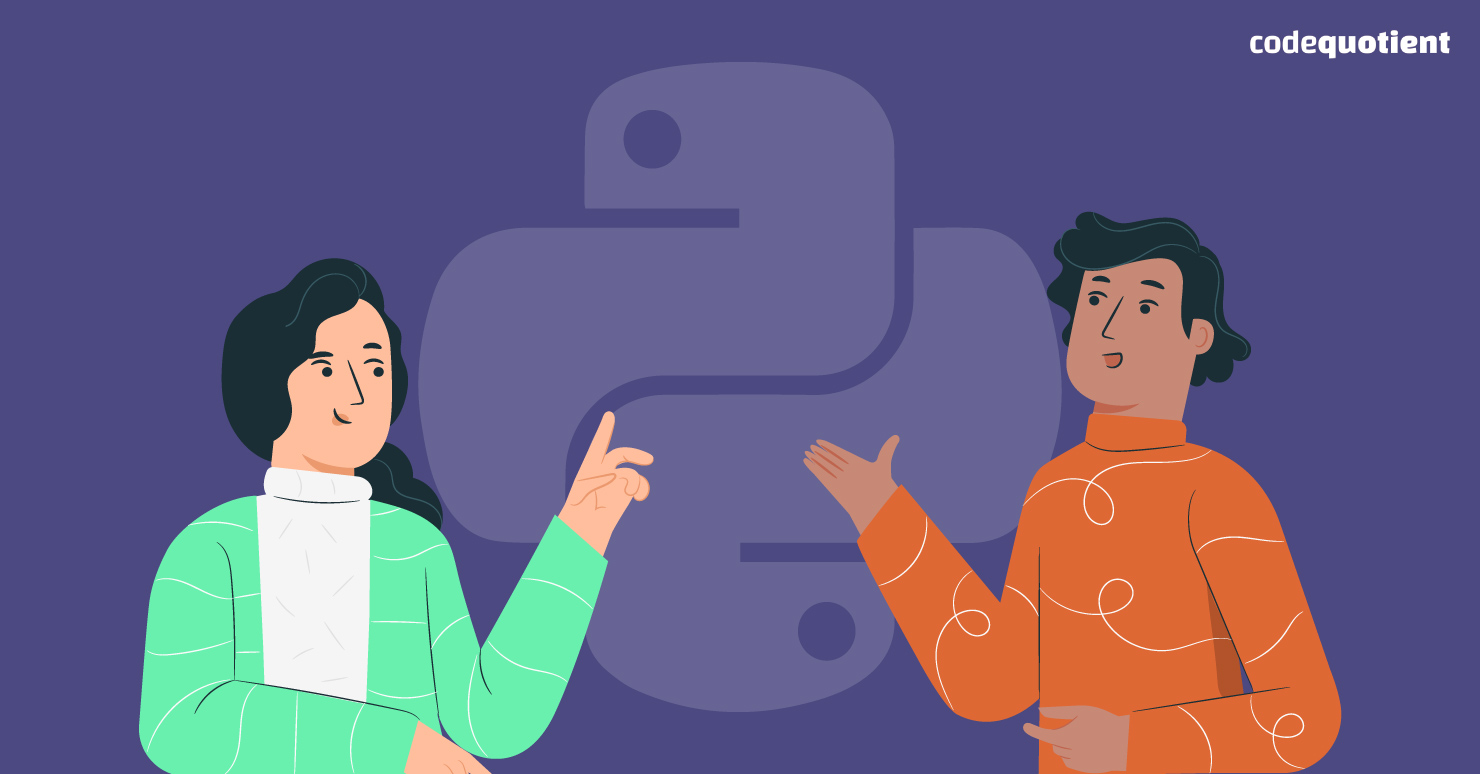Python is one of the most prevalent coding languages.
When applying for a high-paying software developer or python programmer job, you must clear the coding round of your hiring interview to get the position.
The Python coding interview is undoubtedly one of the most challenging rounds in the hiring process for any developer role because it tests the candidate’s programming skills through real-world problems or business use cases. The candidate must solve the problem by writing the most efficient, optimal, and scalable code possible.
How Is the Python Coding Interview Conducted?

When applying for a programming role at a start-up or a well-established company, the way they take the python coding interview can differ. A single interviewer or a panel might ask you to join a meeting where you can share your screen and code the solution in real time in your IDE.
Some famous companies might have their own customised, in-house testing portals where you can have an audio-video interaction with them while coding live. The interviewer can automate the portal to test the efficiency and scalability of your code and highlight any errors or mistakes for the interviewer, based on which they may quiz you on your approach.
Some experienced recruiters might ask you to verbally solve the problem by having you think out loud and describe your method. They might engage you in a back-and-forth conversation about your approach and understand your level of practical knowledge.
All these different approaches make the python coding interview a tough nut to crack. Therefore, we have compiled a list of topics for you to cover so you can ace your python coding interview and leave a lasting positive impression on your recruiter, no matter their style of interviewing.
Critical Topics for Your Python Coding Interview
- Demonstrate Command over Data Structures and Algorithms
In coding interviews, algorithms often receive much attention, but data structures are vastly more significant. Choosing the appropriate data structure in your code may significantly affect performance in a coding interview setting.
Beyond theoretical data structures, Python’s basic data structure implementations include a wealth of valuable features. They provide you with tons of functionality by default and free up your time to work on more complex aspects of the problem. This is why demonstrating a good command of data structures and algorithms can help you ace the coding interview.
-
Use List Comprehensions for Sorting Lists
Python supports list comprehensions with the same functionality as map() and filter while being easier to comprehend (). Let’s first examine the format of a map() call and the corresponding list comprehension:
>>> numbers = [1, 3, 6, 2, 4]
>>> def square(x):
… return x*x
…
>>> list(map(square, numbers))
[1, 9, 36, 4, 16]>>> [square(x) for x in numbers] [1, 9, 36, 4, 16]
While both methods return the same values, the list comprehension is more effortless to read and comprehend.
-
Conserve Memory by Using Generator Expressions
List comprehensions are practical tools, but occasionally they consume extra memory, which can cause runtime issues during code execution.
Assume a coding interview question where you must calculate the sum of the first 500 perfect squares, starting with the number 1. Using list comprehensions, you may write the following code:
>>> sum((i * i for i in range(1, 501)))
41791750
If the interviewer keeps raising the number of perfect squares you need to sum, your code may slow down or even hang because it is compiling a list of all the perfect squares you’ve asked for and adding them up. Summing 500 perfect squares might seem tiny, but 500 million or billion would generate a lot of data and quickly exhaust your machine’s memory capacity.
To solve this, you simply swap out the brackets, which convert your list comprehension into a generator expression that works very well when you want to obtain data from a sequence but don’t need to access it all at once. The code would look like this:
>>> sum((i * i for i in range(1, 501)))
41791750
The generator expression returns a generator object rather than making a list. When asked for the following number, the object only calculates it based on the current state.
Therefore, when sum repeatedly calls. next__() on the generator object, the generator validates the current value, internally increments it, and provides the appropriate result to sum. Because generator expressions store only one element in memory at a time, they enable exponential memory savings when calculating enormous data sequences.
In Closing
While clearing a coding interview can be daunting because Python is a language that comes with many tips and tricks to design efficient code. To impress the interviewer, a candidate should brush up on the skills mentioned above to ace their coding interview and walk away with a job offer. These tips can also benefit your day-to-day work as a python programmer.
To crack a coding interview, a systematic approach to preparation can help. This is why CodeQuotient offers its flagship SuperCoders Program. This three-month-long internship features full-stack development and project-based learning as the key focus area.
Get in touch with us to know more!




